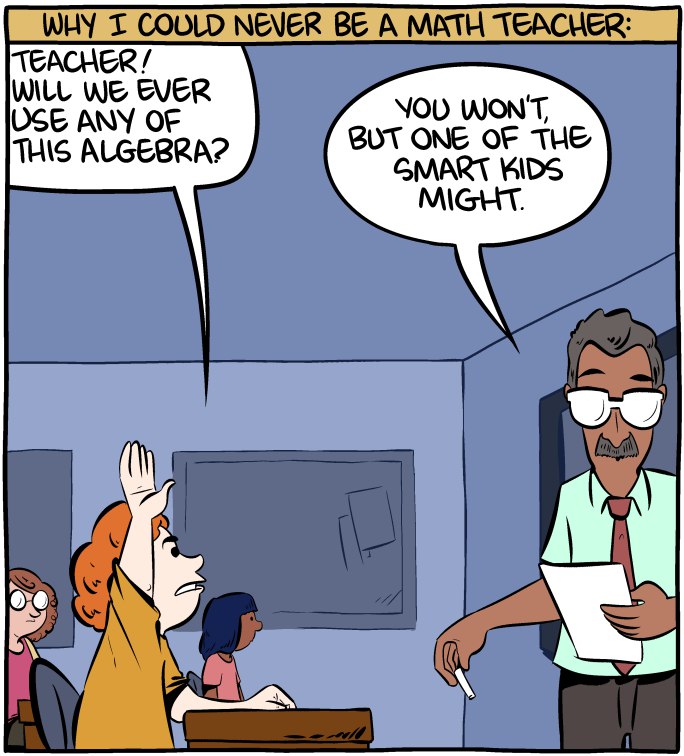Join devRant
Do all the things like
++ or -- rants, post your own rants, comment on others' rants and build your customized dev avatar
Sign Up
Pipeless API

From the creators of devRant, Pipeless lets you power real-time personalized recommendations and activity feeds using a simple API
Learn More
Related Rants

 Math is hard.
Math is hard. When you wanted to know deep learning immediately
When you wanted to know deep learning immediately :)) finally a good answer
:)) finally a good answer
So I have a problem and I was hoping for some insight.
I figured out how to get
(surd(n, x)-surd(n, y))
without knowing x or y, (only n), through a convergent series of approximate identities.
n is the product of x and y, where x<y
My only issue is I don't know where to go from here. I've basically hit the limit of my insight into the problem.
surd() here is just a function that returns the results of two arguments, a, b, such that (a^2)-b.
Both are guaranteed to be positive integers, greater than 1.
But, having come this far, with a couple pages of intermediate identities, I'm at a loss.
question
math